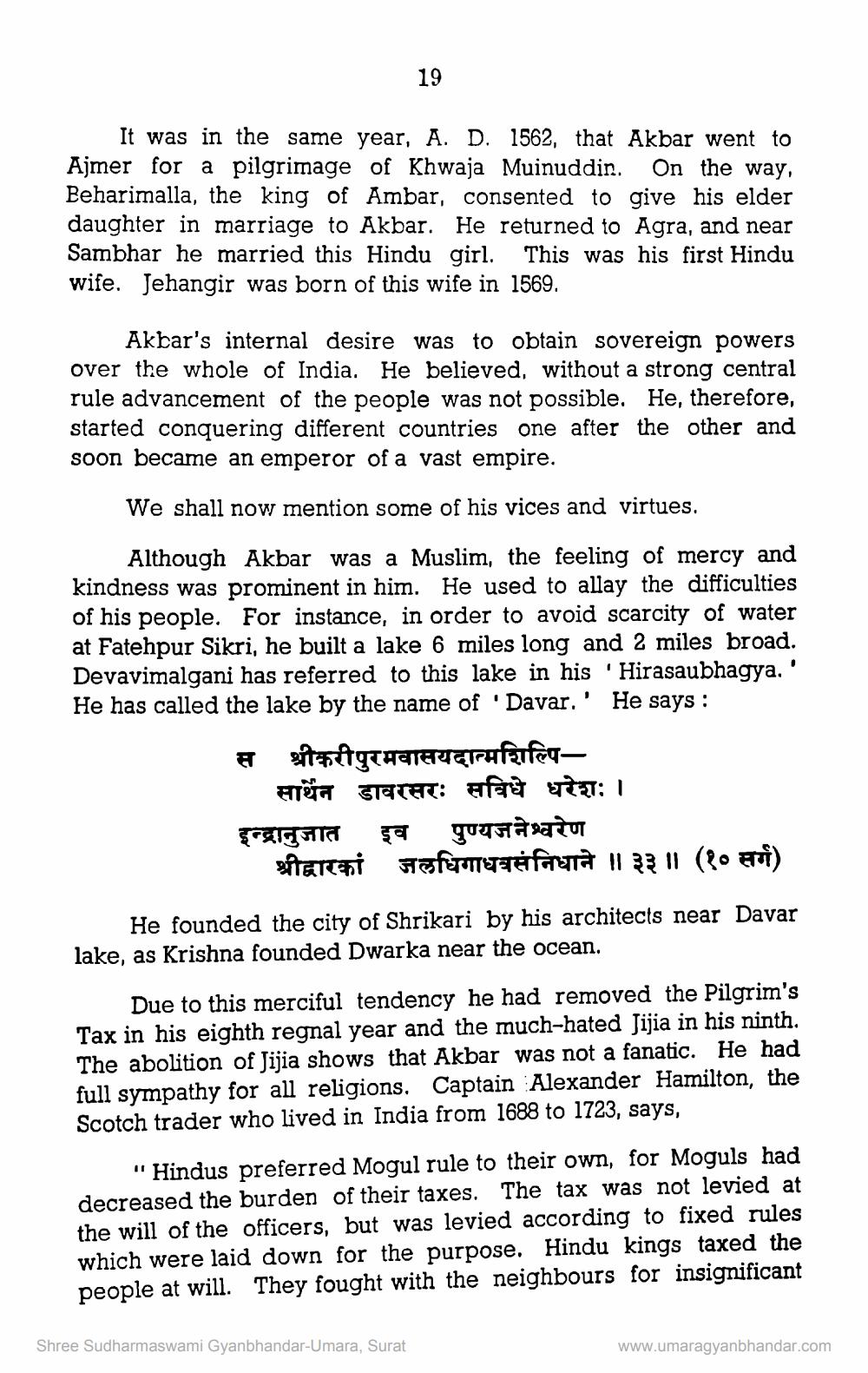________________
19
It was in the same year, A. D. 1562, that Akbar went to Ajmer for a pilgrimage of Khwaja Muinuddin. On the way, Beharimalla, the king of Ambar, consented to give his elder daughter in marriage to Akbar. He returned to Agra, and near Sambhar he married this Hindu girl. This was his first Hindu wife. Jehangir was born of this wife in 1569.
Akbar's internal desire was to obtain sovereign powers over the whole of India. He believed, without a strong central rule advancement of the people was not possible. He, therefore, started conquering different countries one after the other and soon became an emperor of a vast empire.
We shall now mention some of his vices and virtues.
Although Akbar was a Muslim, the feeling of mercy and kindness was prominent in him. He used to allay the difficulties of his people. For instance, in order to avoid scarcity of water at Fatehpur Sikri, he built a lake 6 miles long and 2 miles broad. Devavimalgani has referred to this lake in his 'Hirasaubhagya.' He has called the lake by the name of 'Davar.' He says:
स श्रीकरीपुरमवासयदात्मशिल्पि
साथैन डावरसरः सविधे धरेशः । इन्द्रानुजात इव पुण्यजनेश्वरेण
ETTEI FORTIS FRUTA 11 33 11 (80 Fri)
He founded the city of Shrikari by his architects near Davar lake, as Krishna founded Dwarka near the ocean.
Due to this merciful tendency he had removed the Pilgrim's Tax in his eighth regnal year and the much-hated Jijia in his ninth. The abolition of Jijia shows that Akbar was not a fanatic. He had full sympathy for all religions, Captain Alexander Hamilton, the Scotch trader who lived in India from 1688 to 1723, says,
"Hindus preferred Mogul rule to their own, for Moguls had decreased the burden of their taxes. The tax was not levied at the will of the officers, but was levied according to fixed rules which were laid down for the purpose. Hindu kings taxed the people at will. They fought with the neighbours for insignificant
Shree Sudharmaswami Gyanbhandar-Umara, Surat
www.umaragyanbhandar.com




